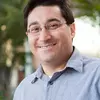ONC announces $8.4M in grants for workforce training, community health
The Office of the National Coordinator for Health IT (ONC) is making available $8.1 million in new grant funding to improve community health and to build the health IT workforce.
Of that total, $6.4 million will go toward a second-generation workforce training program, while the other $1.7 million will fund innovations that address population health at the community level, according to an announcement posted this week on ONC’s “Health IT Buzz” blog. “These funds will go to support programs that help clinicians, administrators, organizations and communities continue to learn and grow on the path to interoperable health IT,” wrote National Coordinator Karen DeSalvo, MD, MPH, MSc, and Ahmed Haque, director of ONC’s Office of Programs & Engagement.
The workforce grant money will support the continuation of an effort authorized by the 2009 American Recovery and Reinvestment Act (ARRA) that graduated nearly 20,000 people from certificate curricula at community colleges and 1,500 from postgraduate certificate or master’s programs, according to ONC.
The grants will help update training materials developed the first time around to address progress made in EHR adoption since ARRA created the Meaningful Use program. ONC wants the new work to focus on population health, care coordination, value-based care and new models for care delivery and payment.
On the innovation side, ONC seeks to build on the findings and accomplishments of the 17 Beacon Communities that the agency funded to the tune of $250 million from 2010 to 2013 to experiment with ways to transform healthcare through IT.
“The new Community Health Peer Learning Program will bring communities together to work in partnership with national experts, local technical experts, consumers, stakeholders and ONC to facilitate shared community learning and problem solving through a collaborative learning program. Participating communities will be required to identify an impactful, measureable, and actionable work plan to improve the use of health information to achieve improved population health,” DeSalvo and Haque wrote.
Learn more about the grants.
